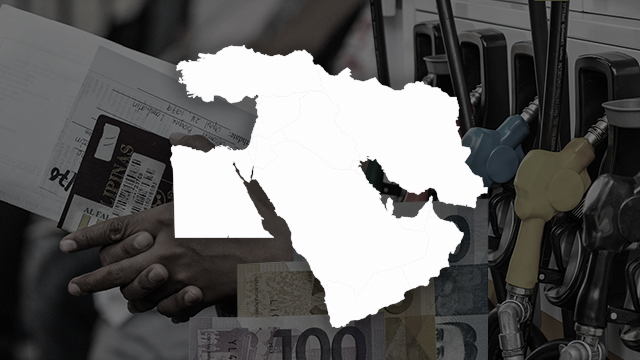[ANALYSIS] Is Duterte ready to handle a looming Middle East crisis?


While the Philippines has been transfixed in the last few days on the boat-ramming incident involving 22 Filipino fishermen in the West Philippine Sea, further west near the Persian Gulf, another maritime episode blew up, escalating an already tense situation in the Middle East, home to over two million Filipino workers.
Like the brouhaha at the Recto Bank, the attack on two cargo ships in the Gulf of Oman on June 13 poses a grave problem for President Rodrigo Duterte, as the country risks getting entangled in a larger power play that could result in a major regional conflict. As it happened, 32 Filipino mariners worked in the two vessels that reportedly got hit with limpet mine and caught fire.
In another encounter on June 20, Iranian surface-to-air missile shot down an unmanned American drone over its territory. The US confirmed the report, but insisted that it took place in international waters, making the strike potentially more combustible. On June 21, the New York Times and the Associated Press reported that Trump approved a retaliatory strike against Iran on Thursday night, before backing down.
With threats of military action and looming deadlines swirling around, the next few days and weeks are critical in determining whether a diplomatic solution could still be salvaged, or if the heated rhetoric could lead to war – the consequences of which, analysts say, are unimaginable.
So what does it have to do with Duterte and the Philippines? Two things: Unprecedented OFW repatriation and sky-high oil price.
But first, some background.
Nuclear deal
At the center of this brewing tension is Iran and the nuclear deal that it signed with the US and other world powers in 2015.
In exchange for giving up its nuclear enrichment program, international sanctions against Iran were lifted, allowing it to sell oil in the world market, and resume trade using the global banking system. The deal also put on hold decades-old antagonism between Iran and the US.
However, when US President Donald Trump came to power in January 2017, he started dismantling the deal, withdrawing altogether in May 2018. He said it failed to curb Iran’s ballistic missile expansion and its “malign” activities in the region -- grievances that are not covered in the agreement.
Observers say that while Trump has low appetite for war with Iran, his “incoherent” Iran policy and “reckless” pronouncements are leading him into that direction. His national security advisor, John Bolton, a top cheerleader of the disastrous 2003 Iraq invasion, is also known as an anti-Iran hardliner and had boasted that 2019 would be the end of the Islamic Republic.
Pursuing a “maximum pressure” policy, Trump then reimposed oil sanctions against Iran, and threatened to punish other countries that continue to trade with it.
As a result, Iran’s economy has tanked and its currency lost more than 60 percent of its value since last year.
Against the odds, Iran has held on to the deal. According to UN nuclear inspectors, Iran continues to comply with its commitments to the agreement. Previously, Iran had also hinted willingness to talk about regional security issues, as long as the US and other signatories keep their end of the bargain.
Comments